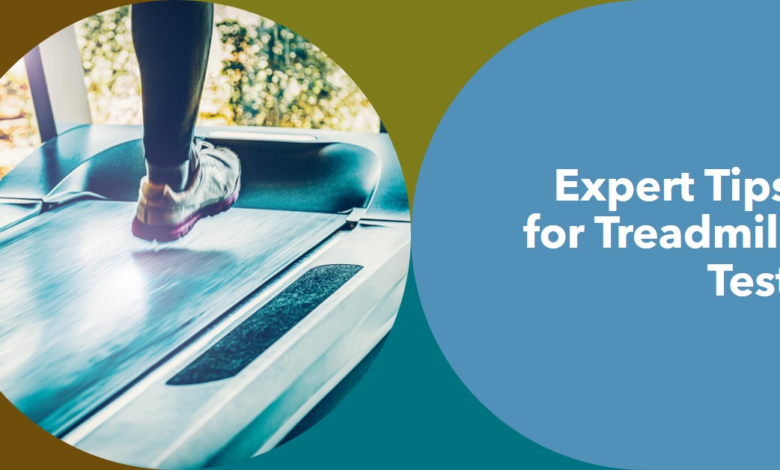Prepare for a Treadmill Test: Expert Tips for Accurate Results

When it comes to assessing heart health, a treadmill test (also known as a treadmill stress test or exercise stress test) is a pivotal diagnostic tool. It helps cardiologists determine how well your heart handles physical activity, which is crucial for diagnosing various heart conditions. However, to ensure the most accurate results, patients need to prepare adequately. This article will guide you through the necessary steps to prepare for a treadmill test, backed by statistics and expert recommendations.
Understanding the Treadmill Test
A treadmill test measures how your heart responds to stress in a controlled environment. During the test, you walk or run on a treadmill while your heart rate, blood pressure, and electrocardiogram (ECG) are monitored. The goal is to identify any irregularities in heart function that might not be apparent during rest.
Why Preparation Matters
Proper preparation is essential for obtaining accurate results from a treadmill test. Inadequate preparation can lead to inconclusive or false results, necessitating repeat tests or, worse, missing a critical diagnosis. According to the American Heart Association, about 10-20% of treadmill tests can yield false-positive or false-negative results, often due to factors related to patient preparation .
Steps to Prepare for a Treadmill Test
1. Follow Your Doctor’s Instructions
Your healthcare provider will give you specific instructions tailored to your health status and medication regimen. It’s crucial to follow these instructions meticulously. Common instructions might include:
- Medication Adjustments: Some medications, especially beta-blockers, can affect heart rate and test outcomes. Your doctor may advise you to stop taking certain medications 24-48 hours before the test. Do not stop any medication without your doctor’s approval.
- Dietary Restrictions: Avoid eating a heavy meal for at least 2-3 hours before the test. A light snack is acceptable if needed.
- Clothing and Footwear: Wear comfortable, loose-fitting clothing and athletic shoes suitable for walking or running.
2. Avoid Caffeine and Tobacco
Both caffeine and tobacco can affect heart rate and blood pressure, skewing test results. It is advisable to avoid caffeine-containing products (such as coffee, tea, cola, and certain medications) and tobacco for at least 24 hours before the test.
3. Stay Hydrated, but Avoid Excessive Fluids
Being well-hydrated can help you perform better during the test. However, avoid excessive fluid intake right before the test to prevent discomfort during exercise.
4. Get a Good Night’s Sleep
Ensure you get adequate sleep the night before the test. Fatigue can affect your performance and potentially alter test results.
5. Know What to Expect
Understanding the test procedure can help reduce anxiety. The test usually lasts between 10 to 15 minutes but can vary depending on how long you can walk or run. The treadmill’s speed and incline will gradually increase, and the test will be stopped if you experience significant discomfort or symptoms.
6. Inform Your Doctor of Any Symptoms or Conditions
Be sure to inform your healthcare provider of any symptoms you’re experiencing, such as chest pain, shortness of breath, or dizziness, as well as any underlying conditions like asthma or arthritis that might affect your ability to perform the test.
7. Bring a Companion
Consider bringing a friend or family member to the test for support. This can be especially helpful if you feel anxious or unsteady after the test.
Why Choose Ecotown Diagnostics?
At Ecotown Diagnostics, we understand the importance of accurate and reliable treadmill tests. Our state-of-the-art facilities and experienced staff ensure that your test is conducted under optimal conditions. We provide detailed pre-test instructions and support to help you prepare effectively, ensuring the most accurate results possible.
Additionally, Ecotown Diagnostics offers competitive TMT test costs in Bangalore, making high-quality cardiac diagnostics accessible. We also collaborate with bloggers and influencers to spread awareness about heart health and the importance of regular check-ups.
Frequently Asked Questions (FAQs)
1. Can I eat before a treadmill test?
It’s best to avoid a heavy meal for at least 2-3 hours before the test. A light snack is permissible if you’re feeling hungry.
2. What should I wear to the test?
Wear comfortable, loose-fitting clothes and athletic shoes suitable for walking or running. Avoid tight clothing that might restrict movement.
3. How long does the test take?
The actual treadmill test usually lasts between 10 to 15 minutes, but the total appointment time, including preparation and recovery, can be around an hour.
4. Can I take my regular medications before the test?
Follow your doctor’s instructions regarding medications. Some medications may need to be stopped temporarily before the test.
5. What happens if I can’t complete the test?
If you experience significant discomfort or symptoms, inform the technician immediately. The test will be stopped, and the information gathered up to that point will still be valuable for your diagnosis.
Conclusion
Preparing for a treadmill test is crucial for obtaining accurate and reliable results. By following your doctor’s instructions, avoiding certain substances, wearing appropriate clothing, and understanding the test procedure, you can ensure the best possible outcome. Ecotown Diagnostics is committed to providing comprehensive support and high-quality diagnostic services to help you maintain optimal heart health.
Are you ready to take the next step towards better heart health?
Also know Lawn Solutions Fertilizer: Achieving a Lush and Healthy Lawn.



